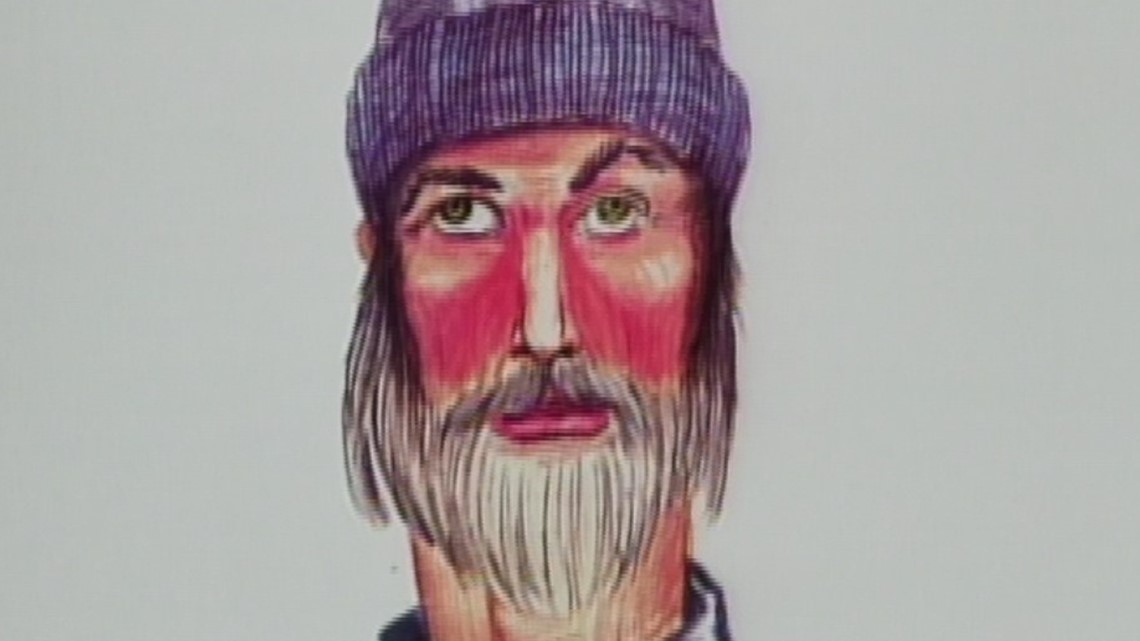INDIANAPOLIS — The "I-65 Killer" has been identified as Harry Edward Greenwell. He died from cancer in Iowa in January 2013 at the age of 68.
In 2019, the Indiana State Police requested the assistance of the FBI’s Gang Response Investigative Team (GRIT) to check DNA evidence. One of the methods used is Investigative Genealogy and combines the use of DNA analysis with traditional genealogy research and historical records to generate investigative leads for unsolved violent crimes.
The technique involves uploading a crime scene DNA profile to one or more genetic genealogy databases in an attempt to identify a criminal offender's genetic relatives and locate the offender within their family tree.
The process made a match to one of Greenwell's close family members.
The DNA was then tested by the Indiana State Police testing lab and came back with a 99.999% positive match to Greenwell.
“These cases did not go unsolved all these years because of a lack of investigative inactivity - investigators continuously tracked leads across the country and did everything they could to identify the person responsible for these crimes,” said FBI Indianapolis Special Agent in Charge Herbert J. Stapleton. “Now, through technological advances and strong, collaborative partnerships we were able to identify this person and, hopefully, start to bring closure and healing to the families of Vicki, Peggy and Jeanne; as well as the surviving victim.”
Greenwell, who was born in Kentucky, had several arrests in his criminal background. He had also escaped from prison on multiple occasions. Police said Greenwell's previously known criminal history did not compare to the murders he has now been linked to. He was known to travel throughout the Midwest.
"While this news might close the cases at hand initially, new chapters of healing begin," said Kimberly Gilbert Wright, the daughter of one of the victims. "Some people might feel upset the killer can't go to trial and face justice."
Greenwell, known in some cases as the "I-65 Killer" or "Days Inn Killer", could be responsible for as many as three murders and several other assaults from the 1980s and 1990s.
For more than 30 years, investigators have been working to find the man responsible.
On Feb. 21, 1987, Vicki Heath was sexually assaulted and shot twice in the head. Police found her body behind the dumpsters at the Super 8 Motel off of I-65 in Hardin County, Kentucky.


Elizabethtown Police matched the DNA in Heath's case to at least four other cases in several states. In each case, the women were all motel clerks, they were all sexually assaulted and robbed, and they all worked along I-65.
Police said these incidents were the trail of a traveling serial killer.
The DNA also linked the murderer to two women who were sexually assaulted and killed in Indiana in 1989.
One year later, in 1990, a woman in Columbus, Indiana, was sexually assaulted and stabbed but survived. That was the first time police were able to get a description of the killer. She described the assailant as a man with green eyes and a lazy right eye.
“This victim was able to escape her attacker and survive. She was later able to give an excellent physical description of the suspect and details of the crime," said Sgt. Glenn Fifield, Indiana State Police. “She is the only known victim to have survived the vicious, brutal attacks of this killer.”
In 1991, a woman in Minnesota, who was also sexually assaulted and stabbed, gave police a similar description of her attacker. The victim described the suspect as a white male, 6'- 6'2'', with green eyes, the right eye was described as a lazy eye, and he had grayish-brown hair. He was wearing a flannel shirt and blue jeans.
"The animal that did this is no longer on this Earth. I'm not going to say his name. I think we need to focus on the victims today," said Indiana State Police Superintendent Doug Carter.
After 35 years, Greenwell has been identified as that killer and attacker. Detectives are still looking at other possible cases in the Midwest that might be linked to Greenwell.

